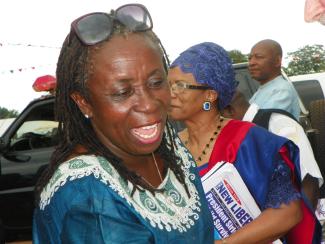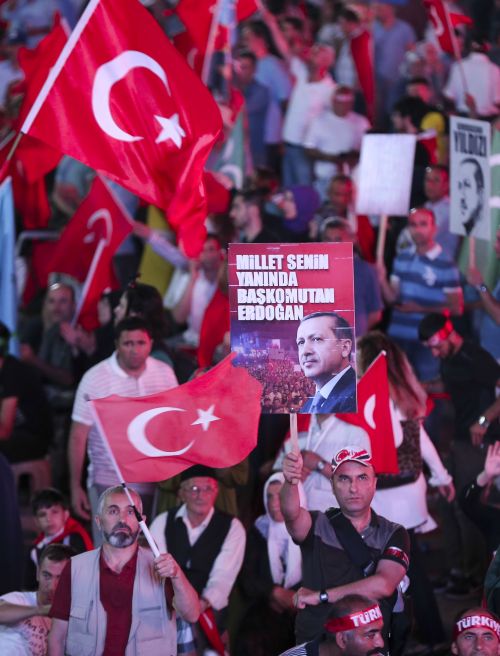Liberia
Appointed by the president

Liberia does not have a history of strong local government. The country was founded by the American Colonisation Society (ACS) as a state for freed and repatriated slaves from the United States in 1847. Obviously, other people already lived on Liberia’s territory. Tensions were wide spread, and Monrovia was made the capital city from which the entire country was run in a centralised manner.
Local people did not get a say in the governance of counties, districts and other tiers of administration. There were, however, elected town and clan chiefs before the civil war that ravaged the country from the late 1980s to 2003. The role of these chiefs war largely ceremonial however, as their budgets depended on decisions made by the central government in Monrovia.
During the war, municipal governance collapsed, as did the state in general. In 2003, it was obvious that the entire state had to be rebuilt. Mayors and town chiefs have since been appointed by the president. That is likely to change however. The generally accepted goal is to make Liberia a full-fledged democracy. Experts argue that the country’s socio-economic development has been hampered by the fact that citizens so far have few opportunities to participate in public affairs. Institutions such as the Governance Commission (GC) are therefore interested in decentralising powers.
An ambitious agenda
The GC was established by national legislation soon after the civil war ended in 2003. Its mandate is to do research and give advice on how to improve governance. The Commission has only recently published the draft for a new law that would devolve government powers to regional and local authorities. The draft has not become law yet. According to it, locally elected leaders would:
- manage the local administration in accordance with the constitution and national laws,
- supervise the preparation of municipal budgets,
- supervise the preparation and implementation of local development plans, which would have to be consistent with national plans and policies on things such as gender equality or youth empowerment for instance,
- supervise the preparation of the annual performance report for submission to local and national authorities,
- supervise the implementation of national programmes and projects at the local level and
- coordinate the activities of national authorities at the local level.
According to the draft, local elections would be managed by the National Elections Commission. City mayors, township commissioners and local council members would thus get a popular mandate. So far, this has not been the case. Amos Sawyer chairs the GC. He argues that properly implemented decentralisation will spur national development across the country. Donor agencies appreciate the approach. For instance, representatives of the World Bank, the EU and the UN Development Programme have endorsed it.
President Ellen Johnson-Sirleaf officially launched the National Policy on Decentralisation and Local Governance in January 2012, reaffirming a campaign pledge of 2005. At the time she had promised to end the "imperial" kind of presidency that has marked the country since the end of the war.
Nonetheless, she sparked a controversy by appointing Mary Broh as acting mayor of Monrovia, the capital city, in 2009 instead of opting for local elections. Charles W. Brumskine, who heads the opposition Liberty Party, criticised the decision at the time. He said that mayors must be elected by the people. If they are appointed by the head of state instead, he argued, they will feel the need to fulfil the president’s demands. Moreover, in Brumskine’s view, mayors lack the legitimacy to levy and collect taxes unless they have their mandate from the people.
The Liberty Party and the Congress for Democratic Change, another opposition party, turned to the Supreme Court, challenging Broh’s appointment. Liberia’s top judges, however, ruled that the president has the power to appoint mayors. In an article published in the Liberian Law Journal, Brumskine stated that this decision was a bad omen. The Governance Commission basically shares his view as is evident in its draft law on locally elected leadership.
Monrovian experience
Mary Broh’s performance as mayor of Monrovia has contributed to the controversy. Her approach to running the city was often heavy handed. She has been accused of using excessive force by setting ablaze market stalls and flogging street vendors in her drive to clean up public spaces. Issues such as cleanliness, sanitation and public health were high on Broh’s agenda, but in many cases she failed to convince the urban public of her policies.
Broh also repeatedly clashed with national legislators. The House of Representatives even passed a motion of no-confidence against her, arguing that she was obstructing justice. The Supreme Court cleared her name, however, and pointed out that the legislators had overstepped their mandate.
Mary Broh has proven quite powerful and good at achieving results, both as mayor and in previous offices. As an officer of the Foreign Ministry she made sure that passports were issued much faster than before. As the head of the National Port Authority she simplified procedures that bothered business people. Under her administration, Monrovia became a cleaner city. However, critics said her actions showed she did not feel responsible to the citizens but instead seemed to be loyal to the president.
She resigned from the mayor’s office once, but was reappointed. Last year, however, President Johnson-Sirleaf promoted her to head the General Services Agency. The GSA is the procurement agency of government, with the responsibilities to acquire, lease and maintain public assets including buildings, vehicles and equipment. In her new position, Broh is managing an annual budget worth almost $ 2 million.
Broh’s appointed successor as mayor of Monrovia is Clara Movgo. She has not left her mark on the city yet.
Another hot topic is the huge disparity among Liberian mayors. The mayors of Monrovia and Paynesville, a huge suburb of Monrovia, command fleets of cars, whereas the other mayors do not have government-assigned vehicles. As the mayor of Monrovia is also the head of the local police, she is accompanied by siren when she moves in the city.
The national budget, moreover, allots extra funding to the local administrations of Monrovia and Paynesville. On top of that money, the two cities also benefit from several donor-sponsored projects. There is no doubt that, in terms of power and perks, the mayors of these two cities are privileged in Liberia.
Samwar Fallah is a journalist with africanstandardnews.com in Monrovia.
samwar2005@yahoo.com










